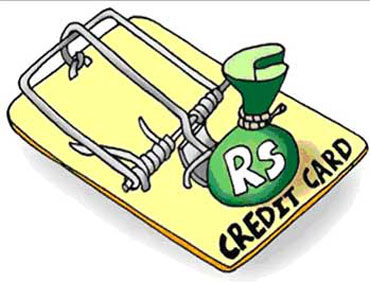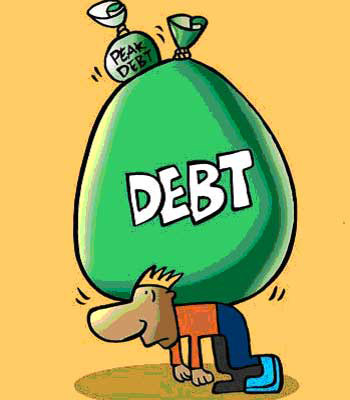
Here are five steps to help you eliminate your debt and set yourself up to avoid problems in the future.
In recent times, factors like easy access to credit cards, personal loans and a 'willingness to splurge' have contributed to newfound lifestyles. Lifestyles that start out with debt and only get worse as time goes on, and spending pressures increase.
While some of us don't use credit cards or do pay our balances in full each month, debt can be a serious problem for those of us who rack it up. So, how do you get out of debt? Here are five steps to help you eliminate your debt and set yourself up to avoid problems in the future.

1. Know what you owe
Figure out exactly whom you owe and for how much. Make a list of all your debts, minimum monthly payments, due dates, and interest rates. Rank your debts in order from those with the highest interest rates to those with the lowest. Determine which debt (if any) is worth keeping.
For example, it makes sense to keep a home loan in your books, as it would also make you eligible for tax sops. That's a major reason many individuals stretch their home loans over the entire tenure even though they can pay it off earlier.
When you know what you owe, you should also try to understand how others view your handling of debt. With credit bureaus offering credit scores to individuals, it is important to maintain a good credit history i.e. making timely repayment of debt obligations.

2. Set up a budget and pay up your debt
If you don't already have a budget, now is as good a time as any to start one. A budget will help you determine how much debt you can pay off, as well as where you can trim expenses to end up with more money to pay up debt.
Once your budget is in place, try to carve out as much as you can to pay down your debt - ideally more than just the minimum payments. While it might make the most financial sense to pay off the highest-interest-rate debt first, a technique called 'debt-snowballing' could have appealing psychological benefits.
Debt-snowballing involves paying up the minimum amount due on each debt every month and applying the 'snowball' amount (additional amount available) to the smallest debt until it is paid off. You then snowball the next smallest debt, and then the next, and so on, until all debts are paid off. In addition to your regular debt-reduction plan, you can also speed up the process by committing to put a percentage of any 'windfall' money, such as bonuses and gifts toward your debt-reduction plan.
3. Lower your borrowing costs
Review opportunities to transfer your loan to another provider who offers a more competitive rate. In the context of home loans, this is colloquially referred to as a 'balance transfer'. Based on the offers on hand, you should even consider negotiating with your current loan provider.
Of course, it is important to understand the costs associated with a balance transfer i.e. pre-payment charges. Also, you must make sure you know how long the new (lower) rate will last and what the subsequent ongoing rate will be.
4. Set up an emergency fund
To keep yourself from falling back into a debt trap, you need to set yourself up for a secure financial future. An emergency fund is your financial cushion to help protect you from unexpected expenses (say, expenses on account of a medical contingency) or changes in income (such as losing a job). You should keep this fund in a safe and liquid avenue like a savings bank account.
Also, you must resist the temptation to utilise the emergency fund for day-to-day expenses. How much should you keep in an emergency fund? Start by saving three months' worth of expenses and work your way up to six months'.
5. Live within your means
This is a hard but necessary truth. Stick to cash whenever possible for future purchases. If you don't want to carry cash, use a debit card instead of a credit card. Even when you use a credit card, ensure that you pay it off every month and pay it off on time!
You can even look into voluntarily simplifying and downsizing your lifestyle. Seek support and advice from peers and family members who are more equipped at frugal living if it helps you.